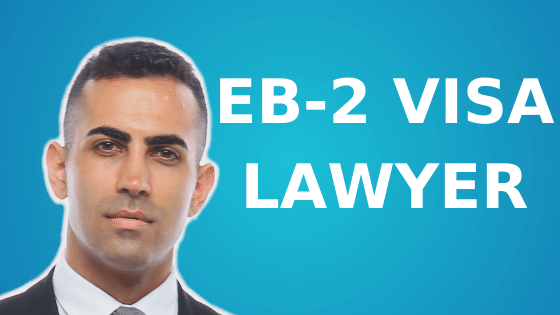The world is today one big, international marketplace. Even locally based SMEs and business owners can find consumers, offer their products/services and work with business partners globally with ease Thanks to globalisation and the growth of the internet, companies today are able to expand their reach significantly at a fraction of the cost generally associated with this type of venture in the past.
However, although this can be done much quicker, easier and cheaper than ever before, some significant challenges remain.
One such challenge a company must face when approaching international markets and customers is linguistic and cultural barriers.
In a highly globalised world, although products and services are generally universal and somewhat interchangeable, local markets (customers) now more than ever prefer companies which offer a highly localised approach and a deep understanding of the market’s cultural and social aspects.
This shows that a company not only took the time to study the market itself, but also respects the potential customers enough to invest their budget & time to ensure that all information is presented appropriately and in a meaningful way.
A localised approach to an international target market is undoubtedly the most popular method amongst some of the world’s leading brands in 2023, such as Nike, Microsoft or Tesla.
What are Official Translations?
Generally, a certified translation refers to a translation of official documents intended for legal use in a foreign country. For example, suppose your documents are in English and you intend to use them in France. In that case, they will most likely need to be officially translated and certified by a legally registered translator or a translation company.
To clarify what the term ‘Certified Translation’ actually means, we spoke with Ashley, a senior translator at TS24. Ashley, who has more than 12 years of experience providing certified translation services, said, “It’s important to remember that each country has different rules regarding what is classified as a certified document translation. For example, a document translated by a translator registered with ITI, CIOL, or an ATC complaint agency is generally considered officially translated in the United Kingdom. Sometimes, your documents may also need to be notarised in front of a solicitor. Other countries, for example, France or Poland, require your documents to be translated by a translator registered in court.” This is also known as the ‘Sworn’ translation.
Who can translate my documents?
Although this question may seem straightforward, the answer depends on several factors.
Generally speaking, however, if you or your business are required to provide an official document translation, the interested party should clearly specify the type of certification they need.
A ‘standard’ certification is usually sufficient for most legal cases, such as visa applications, court headings, or business meetings. This type of certified translation can be provided by a professional translator registered with the CIOL, ITI (UK) or expert translation agencies such as TS24 or Gengo, which follow the ATC translation standards. In some cases, you may also be required to provide a legal notarisation of your translated documents. In this case, a public notary or solicitor must authenticate your documents officially with a stamp and signature. Luckily, this service can generally be done directly by a translation agency.
You may be asked to provide a ‘sworn translation’ if your documents are required outside the United Kingdom. For example, if your documents in English are to be used anywhere in Europe. This is very similar to a standard UK certification. However, the translator who certifies your documents must be registered directly with a court in the country in question, for example, in France. Again, fortunately, most professional translation agencies (even based in the United Kingdom) offer this service as a standard, so you don’t necessarily need to look for a provider directly in the country of your application.
Nonetheless, the safest option is to always double-check for any specific conditions or requirements directly with the party or organisation (Government, Courts of Law, Home Office, University etc.) where your translated documents will be submitted as a part of the application.

What should a business translate when approaching foreign markets?
Translating and certifying business content can be slightly more complex than translating personal certificates or documents.
A business may require a wide variety of materials translated – from marketing campaigns, legal documents, technical guides or online and digital content.
If you’re planning an international expansion, the specific type of materials your business should translate may vary, depending on several factors, for example, the target country, market, consumer base, corporate sector etc.
Translating digital content is key if you plan to operate mainly within the online space, such as offering your services or products online with an international delivery option.
Website, social media, blog, articles and even videos are just some of the materials you need to translate to approach your global audience successfully. In many cases, your website will be the first point of contact between your brand and a potential customer, so make sure that the content is available to them in their native language and that all content (e.g. time, currency etc.) is carefully localised. This can be the difference between a visitor purchasing your product or leaving your website.
Additionally, legal documents – for example, contracts, warranties and other similar papers that are by many considered business-critical can be crucial for your business to function correctly abroad.
Lastly, but equally important, we must mention any marketing campaigns and materials your business will use within the international market. Brochures or leaflets, promotional content, ads, SEO or video ads must be carefully converted into the market’s native language to grow your sales abroad. Translating marketing content can be a lot more complex than other forms of the certified translation as it requires not only linguistic knowledge from the translator but also a deep understanding of cultural and social values presented in your chosen market.
What’s the price for an official translation service?
Now that you hopefully understand what certified translation means, the different types, and who can provide the service, we’ll discuss the aspect that the majority of readers would probably be most interested in – price.
Generally, the cost of translating your documents will depend on the provider you choose to work with and the specific type of certification your documents require. For example, freelance translators generally charge slightly less, however, they are limited in the types of certification they can offer.
Translation agencies, on the other hand, may charge slightly more, however, they cover a much more comprehensive range of certifications, services and languages. They are, generally speaking, much easier to find and contact and can send the translation back to you quickly when it’s ready.
As a rule of thumb, a standard certified translation for a simple document should cost no more than £40 ($50). This should include translating your document into the required language and a signed certification. If you must present a notarised document version, you can expect a price of around £100 ($130).



